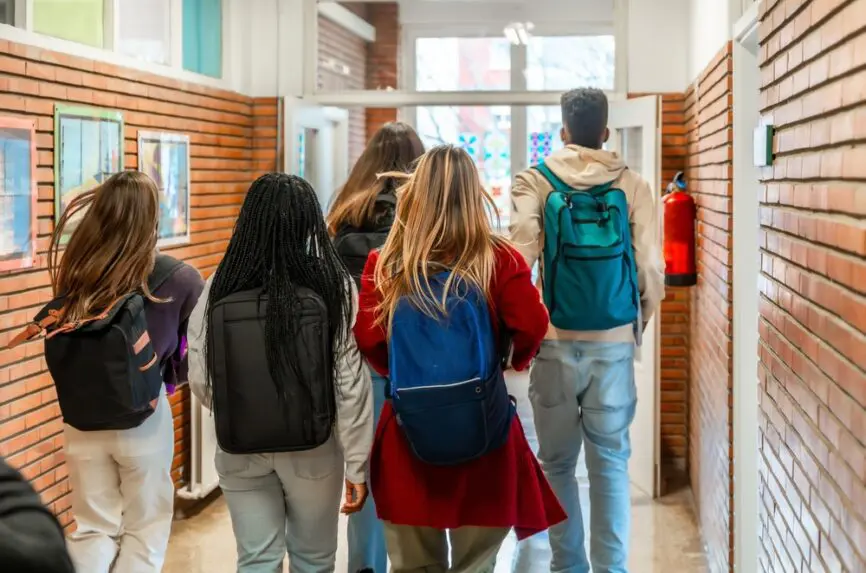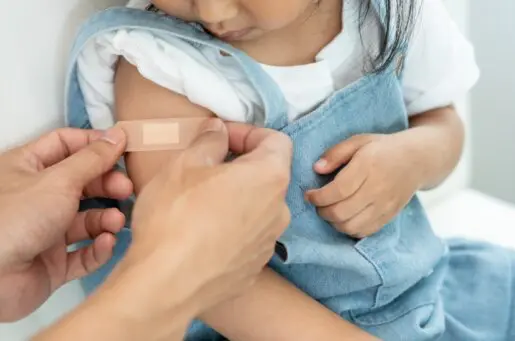Bioethics Forum Essay
Schoolchildren Deserve Better
One of the Trump administration’s latest targets is children’s mental health services. Recently, Education Secretary Linda McMahon and Health and Human Services Secretary Robert F. Kennedy Jr. wrote an op-ed in the Washington Post criticizing Illinois’s pioneering law requiring free annual mental health screenings for public school students in grades 3 through 12. The law is designed to reduce the stigma associated with children’s mental health and inequities in access to this care. Children who go undiagnosed and untreated suffer real harm. The screening requirement creates a systematic approach to early identification, particularly important for children from communities that have historically faced barriers to mental health services.
Secretaries McMahon and Kennedy dismiss this evidence-based approach as “mass therapy” that supposedly creates “learned helplessness” and prevents children from having “the chance to fully grow up and lead successful lives.” Such baseless and irresponsible sweeping statements undermine trust in government institutions and, in this case, put children at risk.
Their alternative prescription is to call for better diet and exercise. No serious clinician or health policy expert would argue against improved nutrition and physical activity. These interventions can indeed support mental wellness. But suggesting that they substitute for professional mental health care presents a dangerous false choice that ignores decades of clinical research.
The evidence supporting psychotherapy’s effectiveness is extensive. Systematic reviews demonstrate significant benefits for treating depression, anxiety, and other common mental health conditions in children and adolescents. There is certainly a need for additional and better evidence about the efficacy of mental health treatments, particularly for serious mental health conditions, but the appropriate response to this concern is more funding for clinical research. Instead, the Trump administration is gutting the National Institutes of Health, attacking universities, and politicizing science. You cannot simultaneously demand better evidence while defunding and delegitimizing the institutions that produce it.
Consider the ethical implications of this attack on children’s mental health services. Children from low-income families, rural communities, and communities of color face systemic barriers to mental health care. Free, mandatory, school-based screening programs, like those created by the Illinois law, help level this playing field by reducing the odds that a child’s access to mental health care depends on the family’s ability to pay or where that child happens to live.
If the administration genuinely cared about the dietary and exercise interventions they champion, we would see investments in school nutrition programs and funding for community recreation facilities. Instead, we see the opposite. It is infuriating to read calls for promoting better nutrition among children from members of an administration that supported the so-called, “One Big Beautiful Bill Act,” which cut the Supplemental Nutrition Assistance Program by $186 billion through 2034.
The real tragedy is that there is a missed opportunity for bipartisan progress. Mental health policy has traditionally enjoyed bipartisan support because the need is obvious and widespread. Parents, regardless of party affiliation, worry about their children’s emotional well-being. Teachers see the daily challenges students face. Pediatricians document rising rates of anxiety and depression among their young patients. Effective mental health policy requires exactly what Illinois law attempts to provide. We need systematic, evidence-based approaches that reach beyond families who already have resources and knowledge to seek help. School-based screening programs work because they meet children where they are, reduce stigma (because all students are screened), and create pathways to appropriate care.
The federal government should be supporting and studying such innovations, not undermining them with politically motivated attacks. What we need is a serious federal commitment to children’s mental health that includes adequate funding for research, support for evidence-based state programs, and recognition that mental health care is health care—not a luxury or a sign of weakness, but a fundamental component of child development and well-being.
The stakes are too high for these absurd political games. When federal officials like McMahon and Kennedy Jr. spread misinformation about mental health services, they contribute to the very stigma that prevents children from getting help. Our children deserve better.
Michael K. Gusmano, PhD, is the Iacocca Endowed Chair and Professor in Population Health in the College of Health at Lehigh University.
Julia A. Blodgett, PhD, is a psychologist and associate professor in the University of Virginia School of Education and Human Development.
Katherine B. Gusmano, MA, MS, is a school counselor.
Delaine Charette, MA, ABSNP, is a school psychologist.













